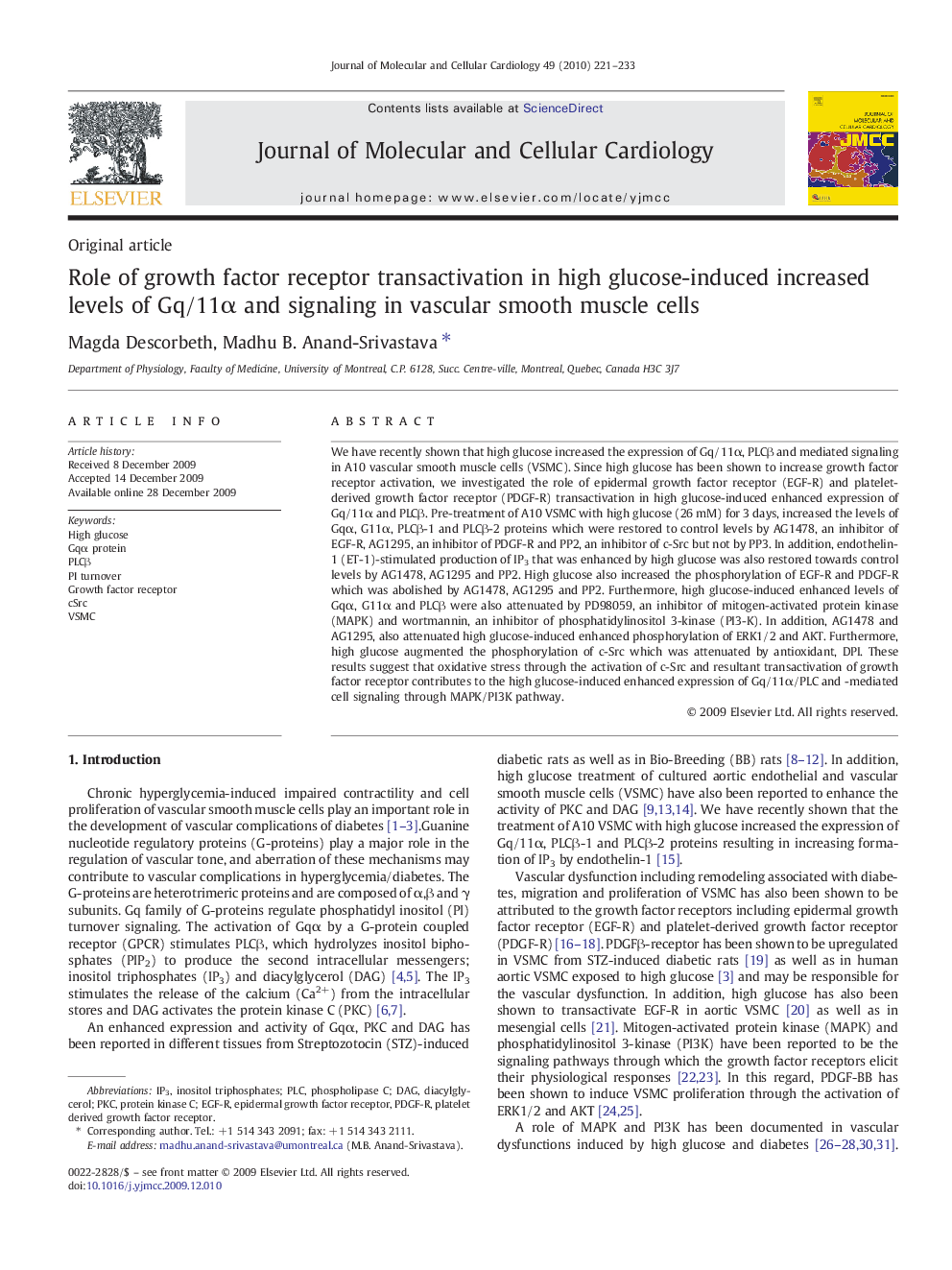| Article ID | Journal | Published Year | Pages | File Type |
|---|---|---|---|---|
| 2191064 | Journal of Molecular and Cellular Cardiology | 2010 | 13 Pages |
We have recently shown that high glucose increased the expression of Gq/11α, PLCβ and mediated signaling in A10 vascular smooth muscle cells (VSMC). Since high glucose has been shown to increase growth factor receptor activation, we investigated the role of epidermal growth factor receptor (EGF-R) and platelet-derived growth factor receptor (PDGF-R) transactivation in high glucose-induced enhanced expression of Gq/11α and PLCβ. Pre-treatment of A10 VSMC with high glucose (26 mM) for 3 days, increased the levels of Gqα, G11α, PLCβ-1 and PLCβ-2 proteins which were restored to control levels by AG1478, an inhibitor of EGF-R, AG1295, an inhibitor of PDGF-R and PP2, an inhibitor of c-Src but not by PP3. In addition, endothelin-1 (ET-1)-stimulated production of IP3 that was enhanced by high glucose was also restored towards control levels by AG1478, AG1295 and PP2. High glucose also increased the phosphorylation of EGF-R and PDGF-R which was abolished by AG1478, AG1295 and PP2. Furthermore, high glucose-induced enhanced levels of Gqα, G11α and PLCβ were also attenuated by PD98059, an inhibitor of mitogen-activated protein kinase (MAPK) and wortmannin, an inhibitor of phosphatidylinositol 3-kinase (PI3-K). In addition, AG1478 and AG1295, also attenuated high glucose-induced enhanced phosphorylation of ERK1/2 and AKT. Furthermore, high glucose augmented the phosphorylation of c-Src which was attenuated by antioxidant, DPI. These results suggest that oxidative stress through the activation of c-Src and resultant transactivation of growth factor receptor contributes to the high glucose-induced enhanced expression of Gq/11α/PLC and -mediated cell signaling through MAPK/PI3K pathway.
